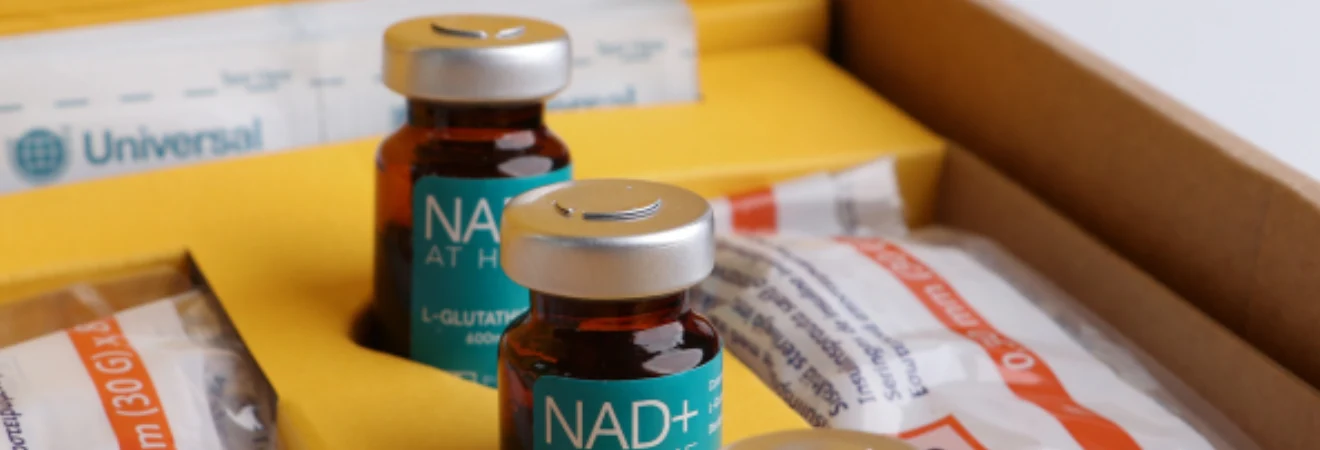An increasing number of people are becoming more concerned about their health and well-being, taking steps to adopt a healthier lifestyle. According to a report from 2024, people in Britain are engaging with health and wellness, with 64% of people taking action to live more healthily.
This has led to an increased interest in exercise, healthy eating, and natural supplements. One of those supplements that people are becoming more aware of is glutathione.
We’re going to look at what glutathione is, what foods and lifestyle choices might have a detrimental effect on glutathione levels in your body and how you can maximise the benefits.
What is Glutathione and Why is it Important?
Glutathione is an antioxidant made up of three types of amino acids: glycine, cysteine, and glutamic acid. It is made in the liver, and as an antioxidant, it helps protect your cells from oxidative stress caused by free radicals.
Free radicals are unstable molecules that cause cell damage. If there is an imbalance in your body, this leads to oxidative stress, causing cell and tissue damage and contributing to chronic health conditions.
Glutathione has many benefits, with studies showing it has antiaging effects, slowing down the signs of ageing and making your skin healthier. It is involved in numerous other natural processes, helping with boosting your immune system, improving your cell function so you have more energy and helping to make the DNA.
This antioxidant in particular has piqued people’s interest in longevity and wellness because of its many uses, especially with how it supports cell function and regeneration processes. With all this, your body can perform better, and you’ll feel healthier.
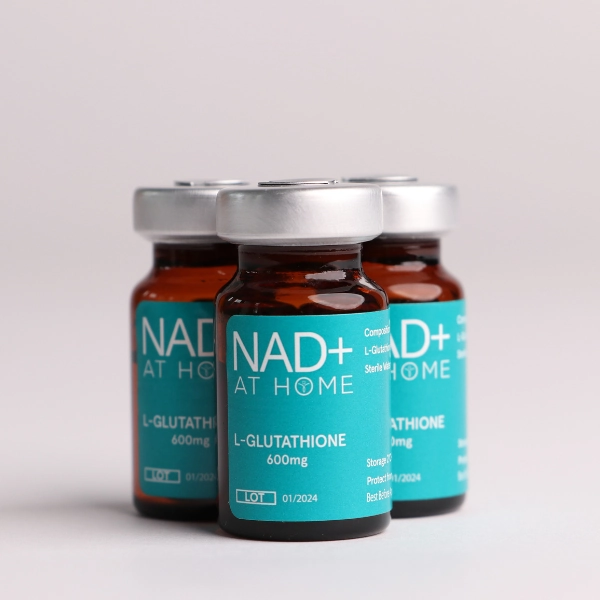
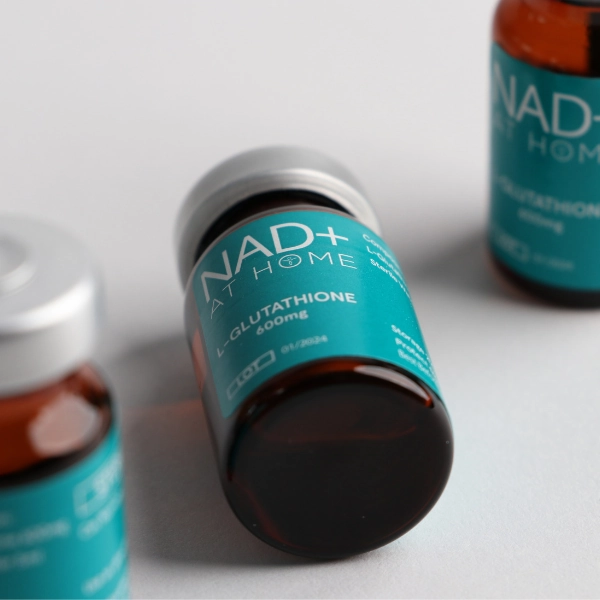
What to Avoid When Taking Glutathione
Interactions with Other Supplements and Medications
Taking medications and supplements can be good for you, but sometimes they can get in the way of each other and reduce effectiveness. For glutathione to be effective, you’ll need to think about what else you are putting into your body.
Here are some vitamins and medications that may reduce the effects of glutathione supplements:
- – Paracetamol: This common painkiller can interact negatively with glutathione and cause damage to your liver in the long term. Studies show that high doses or sustained use of paracetamol depletes glutathione levels in liver cells.
- – Immunosuppressants: Glutathione is involved in boosting your immune function, which means it could directly impact medications that are taken to suppress an overactive immune system.
- – Vitamin C: High doses of vitamin C can cause an increased demand for glutathione, leading to depleted cellular reserves.
Lifestyle Factors That Can Lower Glutathione Levels
It’s not only what you are putting or not putting into your body that can impact glutathione levels. How you are living day-to-day can have a negative impact, meaning that supplements alone won’t help boost your glutathione levels. To really get the benefits, you need to make some lifestyle changes.
Lifestyle factors that could lower glutathione levels include:
- – Poor diet: A bad diet that includes processed and junk food puts more pressure on your liver. Low-quality dairy products can also encourage oxidative stress and inflammation. Caffeine, too, can raise cortisol levels and cause oxidative stress, meaning more glutathione is needed to combat it.
- – Alcohol: Alcohol is a toxin that causes an increase in free radicals, and glutathione is directly involved in detoxifying your liver. Increased alcohol consumption puts pressure on the liver, leading to it being less effective and causing numerous health issues.
- – Smoking: Tobacco puts toxins and free radicals into your lungs and bloodstream, leading to inflammation and decreased lung function. This decreases glutathione levels as your reserves are drained, fighting the effects of smoking.
- – Poor sleep: Regularly depleted sleep increases oxidative stress, meaning that more glutathione gets consumed.
Foods and Habits That Interfere with Absorption
As stated above, some foods will interfere with glutathione levels in your body.
The artificial additives and preservatives present in processed foods to prolong shelf life can affect the absorption of glutathione. They do this by affecting the digestion process, meaning that your body struggles to absorb nutrients, including glutathione.
Excessive sugar does this too. Even sweeteners, such as Aspartame, that are used instead of sugar in diet drinks and foods, can result in lower glutathione levels due to inflammation.
Even supplements can get in the way if overused. This is because overuse can lead to digestive issues, affecting absorption and causing oxidative stress. Also, excessive amounts of supplements mean your digestive system gets overwhelmed, and more glutathione gets broken down completely rather than absorbed.
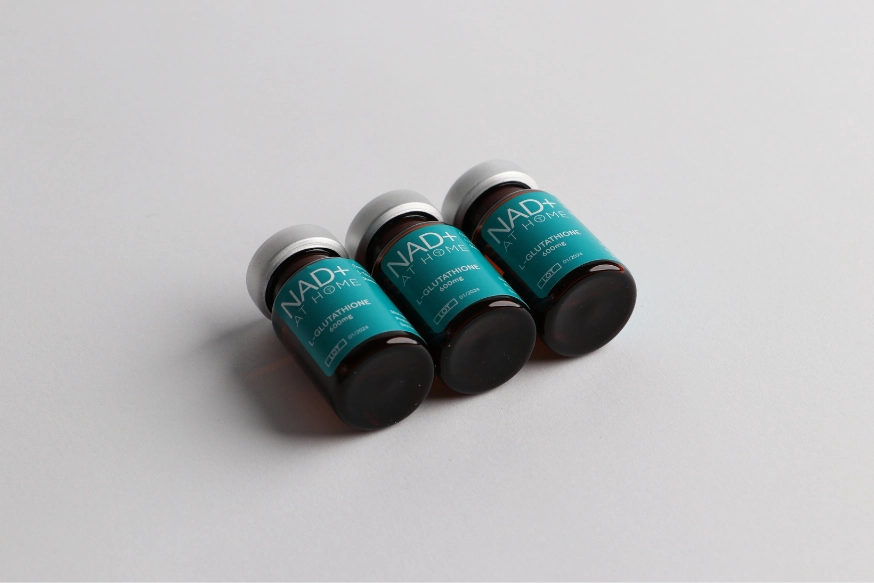
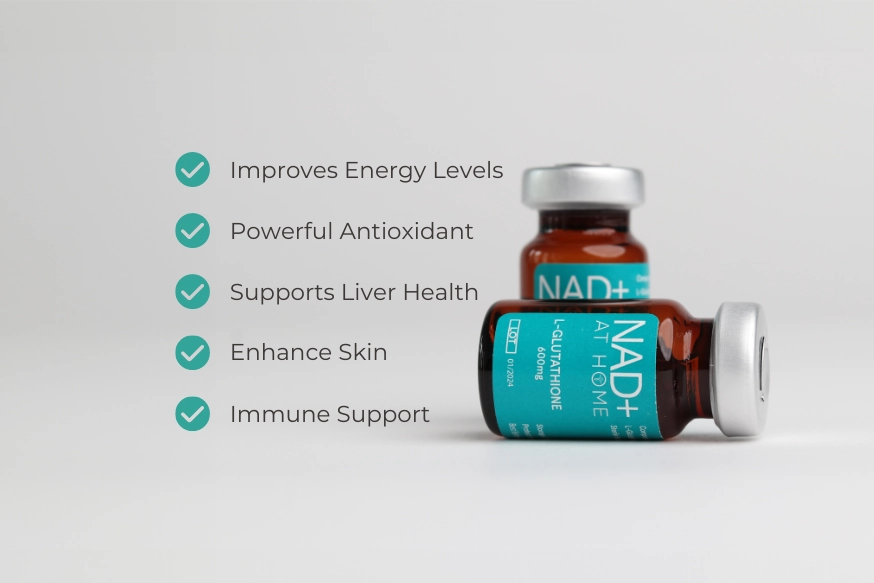
How to Maximise the Benefits of Glutathione
Taking glutathione supplements at home is a good way to boost your levels, but it should just be part of your healthy living arsenal. There are many things you do, eat and drink to maximise the benefits of the boosted glutathione levels a supplement can provide for you.
- – Vitamin C: This vitamin supports glutathione recycling and maintains levels in the body. It is an antioxidant too and attacks free radicals, easing the load for glutathione. Beyond supplements, you can eat more foods rich in vitamin C, such as strawberries, citrus fruits, kiwis and bell peppers. As stated above, though, high doses may actually impact glutathione levels.
- – Healthy lifestyle: Living more healthily will go a long way to maximising the benefits of glutathione. You should be eating a well-balanced diet, including sulphur-rich foods such as garlic, onions and broccoli. Remaining hydrated is also important, so make sure you drink water. This should all be combined with regular exercise, which boosts glutathione levels in the body by affecting antioxidant enzyme activity.
- – Sleep and stress management: Poor sleep can contribute to increased oxidative stress. With regular sleep and avoiding caffeine, your body can better recover and increase glutathione levels. Stress can also deplete glutathione levels, so activities such as meditation and yoga can help you relax more and stay healthy.
It’s important to note that when making rapid lifestyle changes around your health, including taking supplements, you should seek medical guidance. Your doctor can offer you advice and ensure you are safe with the changes you are making and supplements you are taking.
Ready to Take Your Health to the Next Level?
Glutathione is a useful and versatile antioxidant and can help you increase your body’s potential. There are, however, foods, habits and even important medications that can reduce the benefits you may get.
If you want to know more about glutathione or explore our range of products, just click the link.
You can also talk to someone on the NAD+ at Home team right away. Call at 0203 824 2840 to speak to a team member.
Related Blogs
Check out the rest of our latest articles on L-Glutathione.
